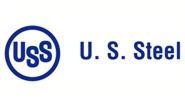Market Segment

April 29, 2015
US Steel Executives Discuss Imports and Production Adjustments
Written by Sandy Williams
US Steel spoke at length on the impact that unfairly traded imports have had on results in first quarter. Although, CEO Mario Longhi could not give an estimate for when the next trade case will be filed he did respond, “What I can tell you, it’s not a question of if; it’s a question of when. And make no mistake, we are going to continue to fight against illegal dumping, period.”
Longhi noted that trade cases are complicated to put together and that the current TPA debate is an opportunity to create an “ultimate solution.” A separate article in tonight’s issue, Analysts Push US Steel for Answers on Rumored Trade Cases, explores US Steel comments on imports and trade cases.
The number of WARN notices that US Steel has issued in recent months (approximately 9,000 or 40 percent of US Steel’s workforce) are needed to provide flexibility as the company responds to market conditions and customer needs.
“We estimate that the impact of these short-term actions will reduce costs over the balance of the year by at least $200 million,” said Longhi. “I would like to emphasize that these are the result of short-term actions that will reverse as eventually — as we eventually return to normal operating levels and bring our people back to work.”
“Our order rates have been significantly impacted by high levels of imports into the North American market that have continued unabated, resulting in operating levels that have caused us to lay off a significant number of our employees and will likely result in the number of layoffs increasing going forward,” said Longhi.
Currently three blast furnaces have been idled, one each at Fairfield, Granite City and Gary. The capacity utilization rate for US Steel was at 60 percent for Q1. Granite City will be down for an extended period because of cash flow, but Gary and Fairfield could come online immediately when market conditions recover.
In the energy sector, tubular shipments were down by half from fourth quarter at 220,000 tons. US rig counts are down 49 percent since the beginning of the year, cutting demand for finished tubular products and the substrate supplied by the flat rolled segment. Exacerbating the problem of decreased drilling and low oil prices was the significant tubular import volume. US Steel does not expect domestic order rates for tubular to recover to recover until late in the year.
Lower overall steel consumption is expected to slow the time required to rebalance supply chain inventory levels in both the flat rolled and tubular markets. Longhi remarked that flat rolled order books are improving somewhat, but on the tubular side an estimated 9-10 months of inventory is still in place with imports still coming in.
When asked if US Steel would consider buying back the Canada assets, Longhi said, “We’ll key our eye on it.”
The new EAF for Fairfield will be producing long products (billets or rounds) for the company’s seamless tube operations, said Longhi.







